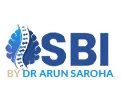Introduction
In this comprehensive guide, we delve into the intricacies of blood clots in the brain, shedding light on their causes, symptoms, and available treatment options. As a leading authority in healthcare, we aim to provide valuable insights to aid in understanding and managing this critical medical condition.
What is a Blood Clot in the Brain?
A blood clot in the brain, also known as a cerebral thrombosis or intracranial thrombosis, occurs when a clot forms within the brain's blood vessels, disrupting normal blood flow. This obstruction can lead to severe complications, including stroke and neurological damage.
Causes of Blood Clots in the Brain
Several factors can contribute to the formation of blood clots in the brain, including:
Atherosclerosis: The buildup of fatty deposits in the arteries, narrowing the blood vessels and increasing the risk of clot formation.
Hypertension: High blood pressure can damage blood vessel walls, promoting clot formation.
Traumatic Brain Injury (TBI): Head injuries can trigger the release of clotting factors, leading to the formation of blood clots.
Heart Conditions: Conditions such as atrial fibrillation can cause irregular heartbeats, increasing the risk of clot formation and migration to the brain.
Symptoms of Blood Clots in the Brain
Recognizing the symptoms of a blood clot in the brain is crucial for prompt diagnosis and treatment. Common symptoms may include:
Severe Headaches: Sudden and intense headaches, often described as the worst headache of one's life.
Weakness or Numbness: Weakness or numbness in the face, arm, or leg, typically on one side of the body.
Difficulty Speaking or Understanding Speech: Slurred speech or difficulty understanding spoken language.
Vision Problems: Blurred vision, double vision, or sudden loss of vision in one or both eyes.
Dizziness or Loss of Balance: Feeling unsteady or experiencing sudden falls without apparent cause.
Diagnosis and Treatment Options
Early diagnosis and intervention are essential for managing blood clots in the brain effectively. Diagnostic procedures may include:
Imaging Tests: Magnetic Resonance Imaging (MRI) or Computerized Tomography (CT) scans can help visualize blood flow and identify clots.
Blood Tests: Laboratory tests may reveal abnormal levels of clotting factors or markers of inflammation.
Treatment options for blood clots in the brain may include:
Medication: Anticoagulant medications such as heparin or warfarin may be prescribed to prevent further clot formation and reduce the risk of stroke.
Thrombolytic Therapy: In some cases, thrombolytic drugs may be administered to dissolve existing blood clots and restore blood flow.
Surgical Intervention: In severe cases, surgical procedures such as thrombectomy may be necessary to remove the clot and restore normal blood flow to the brain.
Prevention Strategies
Preventing blood clots in the brain involves adopting a proactive approach to minimize risk factors. Some preventive measures include:
Maintaining a Healthy Lifestyle: Eating a balanced diet, exercising regularly, and avoiding tobacco and excessive alcohol consumption.
Managing Chronic Conditions: Controlling conditions such as hypertension, diabetes, and high cholesterol through medication and lifestyle modifications.
Regular Monitoring: Monitoring blood pressure, cholesterol levels, and heart health through routine medical check-ups.
Taking Medications as Prescribed: Adhering to medication regimens as prescribed by healthcare providers to manage underlying conditions and reduce the risk of clot formation.
Conclusion
In conclusion, comprehending the causes, symptoms, and treatment options for blood clots in the brain is vital for early detection and effective management, especially for individuals seeking treatment in India. By staying informed and proactive, individuals can significantly decrease their risk of developing this serious medical condition and enhance their overall well-being.
For those in India seeking specialized care, consulting with renowned neurosurgeons like Dr. Arun Saroha at Spine and Brain India can provide access to advanced treatment modalities and expertise in the field. With a focus on precision and innovation, neurosurgeons in India, such as Dr. Arun Saroha, offer comprehensive solutions for addressing blood clot brain treatment in India, ensuring patients receive the highest standard of care and support on their journey to recovery.



